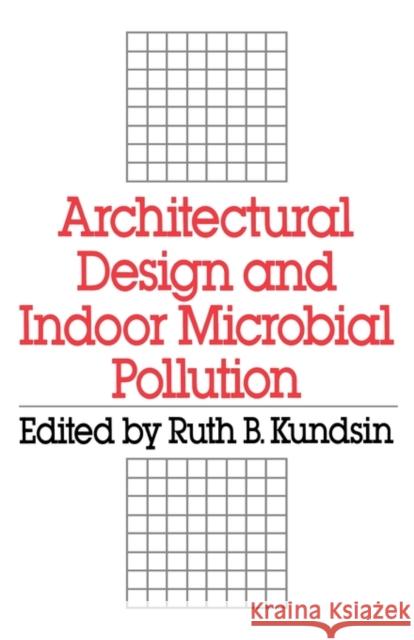Architectural Design and Indoor Microbial Pollution » książka
Architectural Design and Indoor Microbial Pollution
ISBN-13: 9780195044362 / Angielski / Twarda / 1988 / 328 str.
Chemical contaminants and other forms of indoor pollution have recently raised serious concern among occupational and environmental health workers, architects and engineers, and the Environmental Protection Agency and the Occupational Safety and Health Administration. Microbial pollutants in the home pose major health risks to adults, children, and particularly the immuno-suppressed, while "sick building syndrome" is a reality for many office workers. This timely book presents an interdisciplinary exploration of these problems by examining the effects of modern, energy-efficient architecture on levels of microbial contamination in air and water supplies. With the common goal of constructing a microbiologically safe environment, the contributors represent the disciplines upon whose combined efforts a solution depends: systems engineering, medicine, microbiology, environmental hygiene, and architecture. Among the topics considered are methods of contamination control in heating, ventilation, and air-conditioning systems; the microbiologist's role --and the techniques used-- in evaluating the hygienic environment; and assessment of water systems used in health care facilities. Proposing methods for the elimination of the health problems discussed, the contributors stress the need for assessment of architectural design and subsequent preventive maintenance of buildings and their intricate heating and ventilating systems; and they show how poor building design and location affects it occupants. Architectural Design and Indoor Microbial Pollution provides public health professionals, microbiologists, and architects with an authoritative resource for assuring our comfort and safety in the hospitals, homes, and workplaces we inhabit.











